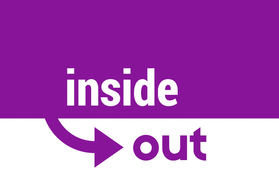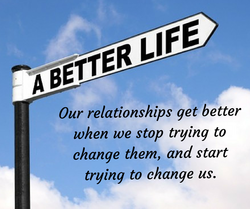P.S. Looking for a way to read Scripture on the go? Download the Bible App (iPhone/iPad or Android). It’s free, easy to use, offers multiple translations, and allows you to add your own bookmarks and highlights.
|
This weekend we kicked off a new message series called Up Close & Personal. It’s all about celebrating the season of Easter by getting to know Jesus better. As we begin this series, it’s helpful to take a moment to reflect on where you are today. How well do you feel like you know Jesus right now? What has formed your impressions about who Jesus is? Teachers? Parents? Friends? Movies? Books? One of the very best ways to get to know Jesus better is through Scripture, particularly through the Gospels. The challenge for this series is to pick one of the four Gospels (Matthew, Mark, Luke, or John) and read it during this series. Today, decide which Gospel you’ll commit to reading over the next few weeks and a time of day when you can devote 10 minutes to reading it. Then, share your plan with others--it’s a powerful way to commit yourself to a goal! Comment below to share your plan and see how others are committing to get to know Jesus better during this series.
P.S. Looking for a way to read Scripture on the go? Download the Bible App (iPhone/iPad or Android). It’s free, easy to use, offers multiple translations, and allows you to add your own bookmarks and highlights.
6 Comments
In our message series, Tough Love, we're exploring what love really looks like, not what love looks like in our dreams or imaginations, but what love really means and requires of us. We're working to understand love not as something we feel, but as something we do. Love is a verb, not a noun, and that means we've got to take action. (If you missed this week's message, you can watch it here.) This week's challenge is to put our love into action in some big or small way through doing good deeds. What's your good deed this week? What's something you wouldn't normally do, but will do out of a commitment to grow in love during this series? Maybe it's something for a friend or neighbor. Maybe it's a good deed for the person you've identified as your "tough to love" person.
No matter what it is, we invite you to share your good deed below, for two reasons:
Share your good deed by commenting below. Feel free to post anonymously if you prefer (enter "Anon" in the Name field; Email and Website can be left blank). If sharing at all feels way outside your comfort zone, you're on the right track. Discipleship is all about growth and growth only happens when we're outside our comfort zones. Thanks for spreading and sharing light!  This Sunday we started a new message series, Inside Out. It’s all about the story of our community--where we are and where we’re going. It’s about stopping everything to ask the “why” question--why do we exist as a Church?--and then starting over, and allowing God to transform us from the inside out. This is such an important conversation for our community to have. (If you couldn’t be with us last Sunday, we invite you to watch the message video.) Spend five minutes right now considering where you are with all of this, so you can be part of the conversation. Why do you think our parish exists? What would you say is the purpose of our church? Take just a couple of minutes right now, and answer that question honestly and thoughtfully for yourself. Maybe even write it down. We have to know our “why” as a church, but the “why” question doesn’t end there. We also have to ask ourselves the “why” question: “Why do I go to church?” Try to answer that question honestly for yourself. Maybe write down your response. Then invite God into that conversation in prayer. Ask God for the wisdom and courage to grow as a disciple. We’d love to hear what you think! Leave a comment below to share your thoughts about these two questions.  At some level, we all know this, but maybe it’s not something we’ve thought about much: relationships are so important to our happiness that the quality of our relationships affects our quality of life. This is especially true of relationships with the people we love the most and spend the most time with. If we want to have better lives, one of the surest ways to do this is to work to improve the quality of even one or two of our most important relationships. This week we’ve been looking at St. Paul’s advice on love and relationships, which comes down to one simple principle: focus on what you can do, what you can control--take responsibility for what depends on you in the relationship. If we want a relationship to get better, we need to stop thinking about what the other person should or shouldn’t have said, about how they should change, about what they should do differently. Love doesn’t keep lists of all the ways I’ve been wronged, all the times the other person hurt me. Love doesn’t rush to point out the other person’s faults. Instead of brooding over injuries and keeping lists, instead of seeking its own interests and protecting itself, love tries to find ways to give more. Our relationships get better when we stop trying to change them, and start trying to change us. If you want to take a next step with this week’s message, here are three ideas:
“As a body is one though it has many parts, and all the parts of the body, though many, are one body, so also Christ.” 1 Corinthians 12:12
God designed us to find meaning and purpose in community. Just like Legos are made to connect with one another, God designed us to connect with one another. In his first letter to the Corinthians, St. Paul challenges us to see that although we are all different, together we complete the body of Christ. We belong to one another--each of us needs all the others, and together we can accomplish what we never could on our own. Belonging to the Body of Christ helps me know who I am, and be who I am, in a way that no other community can do quite as well. God gave us this gift of belonging to his family, being a part of the body, the Church, because he knows that we need it. We need to be connected to each other, we need to support one another, we need to hold one another up. Because we belong to one another. We were made to belong to one another. Want to take your next step with this week’s message?
Last night I went with my family to Faneuil Hall to see the Christmas light show and soak in some of the joyous holiday spirit. It's the kind of place where you keep a close eye on your children, because they could get separated from you so quickly and easily in such a big crowd. After dinner, my kids and I found a relatively uncrowded spot to stand for a few minutes to enjoy our ice cream. I finished first, and spotted a trash can nearby where I could throw away my empty cup, but I realized that if I walked over there without saying anything, my younger child would surely look up from his Blue Vanilla at just that moment, not see me, and panic. So over the din in Quincy Market, I worked to make myself heard: “I’m walking over to that garbage can right there.” My son chose to accompany me the ten feet to the trash can, not wanting to take any chances.
It made me think about how utterly terrifying it can be for a child to be separated from his or her parents, especially in a loud, crowded, unfamiliar place like that. Even if the separation isn’t real--even if the parent can still see the child, and has just stepped out of the child’s line of sight for a second--the child will be terrified. It’s not enough for the parent to be there, keeping a watchful eye--the child also has to be able to see that the parent is there. It struck me that this is what the Feast of the Epiphany that we celebrate this week is really all about. At Christmas we celebrate the great good news that God sent his Son into the world not to condemn the world but to save it. The scenes that take place in the stable in Bethlehem and in the surrounding hills are just the beginning of the story. Epiphany is a key part of the Christmas story--the part of the story in which the focus shifts from God’s initiative, from God’s great love, to our human response. It’s not enough for Christ to be born among us--we also have to know that Christ is here. The Epiphany is about people beginning to realize that a Savior has been born for them. If we’re going to have a relationship with Christ, the kind of relationship that can transform our lives, it’s not enough for Christ to be watching over us. We have to be able to see him, too. And this means we have to search for him. Like the magi, we can’t be satisfied with just knowing that Christ was born, that he’s out there somewhere. To see for ourselves, we have to go out looking for him. Like for the magi, there are signs that point to Christ’s presence; but for us, the signs are in our lives, not in the sky. We have to look for the ways Christ is present and active and working in our lives. When we experience a moment of peace in the midst of a time of anxiety, a peace that we did not and could not create for ourselves; when we are surprised by a glimmer of hope rising up in us, despite all the reasons we’re sure that nothing will turn out right; when we find ourselves drawn to doing the harder thing, the more courageous thing; when we feel ourselves in some mysterious way accompanied and loved, and moved to accompany and love others; when a beloved friend or a total stranger says something to us that turns out to be the exact word we need to hear--all these are signs pointing to Christ’s presence in our lives. And of course, Epiphany also reminds us that we are called to lead others to Christ. The star is such a central symbol of Christmas, and such a fitting symbol of what Christ asks us to do: to light the way for others, to lead others, especially those who are far off, into relationship with him. At least four parishioners this Christmas told me about families who had accepted their invitations to come to church--to worship with us during Advent, to join us for Christmas Kickoff, to come to Christmas Mass. And dozens more members volunteered to serve as greeters this Advent and Christmas, to ensure that when these families arrived at church for their first time, in response to an invitation from a friend or neighbor, they would be warmly welcomed. These are such encouraging signs of growth in our parishes--thank you so much to all who extended invitations to join us, and all who helped provide a welcoming spirit at New Roads this Christmas. ~Rachel Take your next step: This week, look for signs of Christ’s presence in your life, signs of peace, hope, joy, love, and guidance. See if you can find one sign of Christ’s presence every day. This is week two of our Advent message series, Making Room, in which we are exploring together how to make room in our hearts and in our lives for Christ, and how to make room in our churches for those who don’t worship with us regularly. When we think about making room in our churches for guests, sometimes it can feel like someone else’s job, or maybe just the greeters’ job. But the reality is that every interaction a guest has in our churches contributes to their decision to come back again or not. Each of us has the power to affect a guest’s experience in a powerful way! How can you welcome guests? Here are seven practical ideas (adapted from thomrainer.com):
Saying these things may be outside your comfort zone. That’s OK! Stepping outside our comfort zone is how we grow as people and as disciples. Take a shot at saying one of these phrases to someone in our church during Advent--it’s one small way of making more room for Christ in our hearts by making more room for all of God’s children in our churches!  We all have a need for God in our lives. Whether we recognize it or not, each of us needs a Savior. Only God frees us from sin and brokenness, from limitedness and death, from meaninglessness and emptiness. Only God offers us reconciliation and healing, mercy and hope, liberation and eternal life. Our relationship with God cannot truly grow until we know that we need him, and maybe even begin to have a sense of why we need him. Why do you need a Savior? This week, several members of the pastoral team, a handful of parishioners, a pope, a couple of musicians, and even some saints share their reflections on their own need for God. Why do you need a Savior? Augustine (saint): You have made us for yourself, O Lord, and our hearts are restless until they rest in you. Casey (parishioner): I need my Savior because my Savior needs me. Charley (music director): I need a Savior because salvation from sin is a universal need. Denise (music minister): I need a Savior because I am flawed and need forgiveness, refuge, and strength. Dietrich Bonhoeffer (pastor, theologian, and martyr): I am lonely, but You do not leave me; I am feeble in heart, but with You there is help; I am restless, but with You there is peace. Francis (pope): I am a sinner, but I trust in the infinite mercy and patience of our Lord Jesus Christ. Jodi (parishioner): I need a Savior because I need his loving example for how to try and live my life. Sr. Kathleen (associate minister): I need a Savior because good intentions are not enough. As much as I try to overcome my shortcomings, I cannot do it without the grace God gives. Kathy (assistant to the leadership team): I need a Savior because I have only scratched the surface of the person God is calling me to be. Kathy (coordinator of volunteers): I need a Savior because my life is imperfect and I need to ask for help every day, while being grateful for the times of joy. Mary (administrative assistant): I need a Savior because without the guidance and loving care of our Savior, I would not be fulfilling his call to continued conversion and holiness, which brings joy, peace, fulfillment, and happiness to me and to God. Matt Maher (musician): Without You I fall apart You're the One that guides my heart Paul (saint): I don’t have what it takes. I can will it, but I can’t do it. I decide to do good, but I don’t really do it; I decide not to do bad, but then I do it anyway. (Romans 7:18-20; The Message translation). Rachel (associate minister): I need a Savior because my perspective is so limited, and on my own I am selfish and afraid--I need Christ to show me what really matters and to teach me to give generously and love courageously. Sidewalk Prophets (musicians): I’m completed When you are with me Fr. Thom (pastor): I need a Savior because, even though many people may not realize it by observing me, on the inside I don't feel like I can manage many things in my life, and I depend on the Lord’s help every day. Tony (parishioner): I need the Savior’s strength to be the person God wants me to be. Take your next step: What about you? Why do you need a Savior? Listen to the song “Lord, I Need You,” and finish this sentence for yourself: “I need a Savior because…” I was talking with a friend who lives in Texas. She was telling me about a friend of hers who runs the classes people need to take in order to get a permit to carry a concealed weapon. She said that in one relatively small town, he is able to profitably fill a class every month. I was astonished to think that there is a growing number of people who have the interest and motivation to actively seek the training required to carry a hidden gun. I am very interested in any growing population, since that is the biggest problem we are facing as a faith community--that we are not growing.
What makes the difference? What nurtures the growth of individuals or communities, and what holds us back? An important question for every person and every community is: what do you envision for your future? The question is different at different stages of the journey. It starts when people ask us as children, “What do you want to be when you grow up?” As we grow, and maybe find ourselves in very different roles doing very different things than we imagined, it becomes more and more important to look to how we are living in the present, since that is what shapes our future. As we look back on the paths our lives have taken, we have a great opportunity to see God’s presence and action along the way. Awareness of the presence of God can reveal new paths, new callings, or new roads that we may never have dreamed of pursuing. I believe that the way to change our shrinking churches into growing churches is to encourage each other to actively engage in reflection on where each of us has seen God’s presence and action in our lives. This leads to a place of gratitude, peace, and confidence in God’s love for each of us. When we dwell in this space, we live life more intentionally and become more authentically who we were made to be, regardless of our occupation or the roles we play. When we see people who embody this kind of joyful spirit, we are attracted, and want to know where it comes from. People who know the joy of God’s love have a way of proclaiming this joy with their lives. I think of the times when I have been privileged to hear people telling stories about when they have experienced God, like when courageous and generous members of our community gave witness talks during Lenten Masses, or on our Confirmation retreats. It is not an easy thing to do, and my experience is that everyone I have ever asked has felt that they didn’t have anything to share and couldn’t do it, but have nevertheless had a powerful impact on their listeners. This is how we begin to create a cultural shift that values and embraces identifying and sharing experiences of God. For us to really grow, the way Jesus envisioned, and the way his early disciples put into practice, it’s up to us to create a culture that values sharing faith, as strong as the Texas culture of gun ownership. It’s so easy to believe that this call is for someone else. We already have busy lives. Or we don’t think we have what it takes, or we don’t think God would be calling us. But the truth is, the story of Jesus sending his disciples out into the world is a blueprint for his plan for transformation of the world, and it is for every one of his followers. Like the twelve, we are supposed to be his emissaries. Perhaps not by going off to foreign lands, but by the way we live our lives now. No matter what our job, each of us has a share in Jesus’s vocation. His instructions to us are simple: preach repentance, heal people, and continue his battle with the powers of evil. Take nothing for the journey; God will provide what you need. What is Jesus calling you to do and to be? ~Fr. Thom Take your next step: Ask someone you know and trust to spend some time thinking and praying about where God has been a part of their lives, and promise to do the same. Set aside some time to tell each other what that was like for you and what you discovered. Has God spoken to you lately? No, really--stop for a minute, and think about it. Has God spoken to you lately? What did God say? For a lot of us, the idea that God would speak to us might seem far-fetched. Maybe it seems like God stopped speaking a long time ago, around the time the Bible was finished. Or maybe it seems like God does still speak to people, but only to saints and visionaries and popes. Or maybe it seems theoretically possible that God is speaking to you personally, but you have no idea how you would know what God is saying. But what if we entertain the far-fetched notion for a moment: what if God really does speak to us all the time, in ways that we can actually understand, if we really want to?
After all, we believe that God created us and loves us and wants to be in relationship with us. What kind of God would create us and love us and want to be in relationship with us, but never speak to us? We believe that God is deeply interested in each of us, in our hopes and fears and dreams. How could God possibly not want to speak to us about those things? So if we haven’t heard God speaking to us lately, maybe it’s not because God hasn’t been speaking, but because we haven’t been listening. One of the things that can get in the way of hearing God is that we get stuck on thinking that if God were to speak to us, it would have to be in some highly dramatic biblical fashion, like a thundering voice from a cloud. This can be a big roadblock--if we’re looking for a voice from a cloud, we’re probably going to miss the ways that God is really speaking to us. God can speak to us through our emotional responses to events and experiences in our lives, through his Word, through the words that people in our lives say to us, through creation, through the sacraments, through the Church, through art and music and literature. God speaks to us all the time in a thousand ways that we can understand, if we really want to. A huge part of listening to God is just paying attention. But it’s also true that sometimes, we don’t listen to God because we don’t really want to hear what God is saying. We’re afraid that we’ll have to change in some way that we’re not really open to, or that God might ask us to do something we’re not prepared to do. So we avoid hearing the word that God is speaking to us by not bothering to pay attention. Maybe deep down we have a gut feeling that we know what God is saying to us through our experiences or through another person, and it’s something we really don’t want to hear. Or maybe we have already decided what we want God to say to us, and we’re only willing to listen if God says the words that we’re trying to put in his mouth. So we resist and rebel, doing the spiritual equivalent of sticking our fingers in our ears and saying, “I can’t hear you!” For me, there was a time in my life when I was very intentionally trying to discern God’s will for me. I wanted God to tell me specifically what kind of work he wanted me to do, so I was spending a lot of time asking, “What do you want me to do, Lord?”, and a lot of time hearing nothing in response. The possibilities that I thought might be God’s will for me didn’t work out, and over the course of several months, I became increasingly frustrated and resentful: here I was wanting to know God’s will so I could live it out, and he wouldn’t even tell me what it was. I kept hammering away and hammering away, until eventually in prayer it occurred to me that maybe “What do you want me to do, Lord?” was not the question God wanted to answer for me right then. It was what I was interested in talking to God about, but maybe it was not what God wanted to talk to me about. So I began to try to listen to God not for an answer to my questions, but for whatever God was trying to say to me. And slowly I began to hear God say, “You don’t need to worry about that right now. Just serve where you are. You don’t need to figure out some grand plan. Just serve the people I put in front of you every day.” I started to hear God saying “Just serve,” in a very strong and comforting way, all the time. In hearing that message and trying to follow it, I felt a sense of peace that I hadn’t known I needed. As it turns out, God has a much better sense of what I need to hear than I do. But I have to keep relearning this lesson over and over again. ~Rachel Take your next step: The Examen is a way of praying developed by St. Ignatius that helps us to grow in our ability to recognize and hear God’s voice. It takes about 10-15 minutes a day. Try praying the Examen every day for a week as a way to become more open to hearing God speak to you. |
Archives
August 2017
Categories
All
|






 RSS Feed
RSS Feed
 Like us on Facebook
Like us on Facebook Follow us on Twitter
Follow us on Twitter